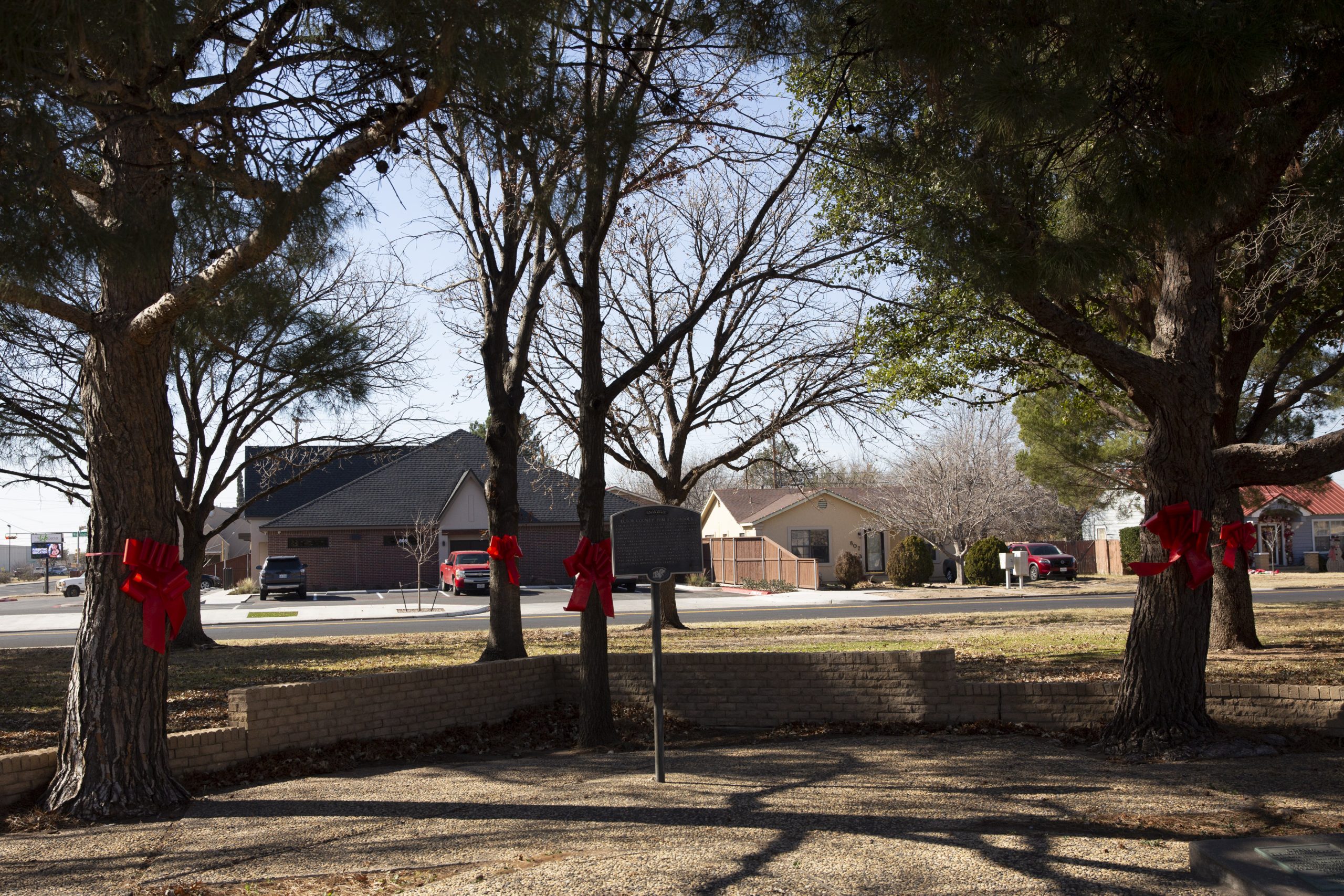
In Ector County ISD’s world of Special Services, fall is the busiest time of year and the department is short staffed slowing the testing process.
They have five diagnostician vacancies and four in the ARD facilitator to diagnostician pipeline. Three will soon fill three vacant positions.
They also have five vacant Speech Language Pathology Assistant positions, one vacant Speech Language Pathology position, and one vacant Speech Language Pathology intern position open.
The ARD facilitator supports the Admission, Review and Dismissal meetings for students receiving special education services in the district through collaborative efforts with the campus staff and diagnostician.
According to the Texas Education Agency, there are currently three outstanding special education complaints related to Ector County ISD and the matter(s) remain ongoing, a spokesman said in an email.
“We are short speech therapists more than we are diagnosticians, so to help with that gap we contract on both ends for diags and speech. We contract with people that retired. They’ll come back and work part-time, or they’re just people that are contracting. We’ve also contracted with virtual assessment staff, so I’m contracting with them to help get some of the testing done. Then we also on the speech side do the same thing. So we really do the same thing on both sides —contract with real people, contract with virtual people,” Executive Director of Special Services Leslie Wilson said.
They also pay staff that work weekends to conduct tests.
There are four diagnosticians in the pipeline. Wilson said one has passed the test and two will take the exam after the holidays.
“Those three will move up to diagnosticians filling three openings,” Wilson said. “We’re using ESSER (Elementary and Secondary School Emergency Relief) funds to fill the pipeline, so we already have applicants to fill the vacancies that we’re going to have when those ARD facilitators move up.”
ARD stands for Admission, Review and Dismissal Committee. It is the team that “meets to determine eligibility based on a full and individual evaluation report, and to develop an individualized education program (IEP) for the child, if applicable,” the Texas Education website said.
Wilson said her department has not had to contract out for licensed school psychiatrists.
“We have four of those and one vacant position, so we have not had to contract on that side. We have an opening for a special ed counselor, though, and we are contracting with a company for virtual counseling, so we have four counselors through the company that do our counseling,” Wilson said.

Children with disabilities like autism are usually caught when they’re young through early childhood intervention before they come to school. ECI is not part of Special Services, but referrals come to Special Services from them.
“When they enroll at Carver (Early Education Center) and West (Elementary), we usually pick up those kids and they’re assessed. That’s how they go to Carver and West. … If we have older kids, then it’s a special ed referral where we get parent information, teacher information, health information. There’s a packet they fill out and then it comes to us and we assign a licensed school psychologist to do that evaluation,” Wilson said.
Parents can also request that their child be tested in writing. Children may also be placed through the Response to Intervention process and at the request of principals.
RTI is continuous intervention to help a child gain skills. If a child does not gain those skills, they end up getting referred to special education.
“We hope they grow when they get that intervention, but if they don’t that’s usually the students that end up being referred to special ed because no matter what we do in the classroom — whether it’s small group or we’ve got a program off to the side we’re using … the kid never seems to be able to make progress. Those are the kids that will come over to special ed,” Wilson said.
The requests have to be made in writing.
“We have to have everything in writing, so they can request if they want their child assessed. We follow state and federal guidelines. If a parent requests, we have to get back to them in a certain amount of days. Then it goes through our referral process. They still have to fill out that paperwork — the parent information, teacher, health. The reason they have to do a health screening is we don’t want them to need glasses and we think they can’t read … or we don’t want them to have a hearing problem and we’re not looking at the right thing that’s causing the problem. We have about 45 days to test the child once we get consent from the parent and then we have another 30 to have the ARD,” Wilson said.
There is an ARD for programs because children aren’t automatically placed in a program.
“It depends if they qualify; if they meet the eligibility criteria; and the ARD makes that decision,” Wilson said.
Special Services serves about 3,400 students and hundreds are in line for testing.
“We get about 25 referrals a week. I want to say we’re around 400 to 500. That’s on the nice side,” she said.
Wilson added that the staff is busier in the fall than the spring.
“Usually in the spring we get a lot more assessments completed than we do in the fall because it’s STAAR and stuff like that. Every year we see a lot of referrals and we feel like we catch up to the end and then it starts over. It’s a never-ending cycle,” Wilson said.
There are multiple campuses that offer special education services.
“There’s autistic kids all over the district. There are certain campuses that we have more restrictive placement, so they’ll have a teacher that is trained in autism. But our schools (are) arranged with sister schools, so if a child enrolls in a school that doesn’t have the support that’s needed they can go to a sister school that has a teacher with a specialty in autism. But we try to keep those kids on their home campus because we have special ed teachers, like I’m a special ed teacher, and we have all that training to work with any special ed kid. But if you have a kid that’s a little bit more, like the behavior’s more intensive, or they’re excessively aggressive then we have rooms for those kids to go to and we work with them and we hope they go back to their regular campus after they’ve had some intervention, but sometimes they don’t,” Wilson said.
The speech therapists and licensed school psychiatrists work together on the early childhood campuses.
“We do have specialized classrooms there for those children that are autistic, so we get them in pretty early. We hope we catch them at 3 when they come in and usually we do,” Wilson said.
Licensed school psychiatrists are the ones that determine autism or emotional disturbance. The diagnosticians assess for intellectual disabilities and learning disabilities such as dyslexia.
Any parent who is worried about their child or thinks something could be wrong can call the Special Services office at 432-456-8719.
“We have Child Find on our website. We do, at the beginning of the year, pass out Child Find flyers but if they do they can call our office here and we (can) get them in touch with a speech person or a diag, (or) whoever they need to be in contact with. So any parent that is worried about their child, or thinks there’s something they would just call us and we’d walk them through the process,” Wilson said.
“There’s … an intake form where we ask them what they feel … is wrong; what are they seeing, to give us kind of a base to know where to go from there. But we will assess in any suspected area, so if there’s a suspected area of autism, or an intellectual disability, by law we have to do that. Sometimes we assess kids and they don’t qualify or they don’t meet eligibility, but the parents are worried. … There are certain things that children learn and certain sounds they make at certain grade levels, like a growth scale. A parent might be worried that their child still hasn’t passed that point where they still have time to learn that sound. … Some kids can say the R real quick and some it takes longer. There’s a window to learn all the sounds, but that’s what the speech therapists are good at,” Wilson said.
Asked if they retaliate against people who call too often, Wilson said they don’t and they can’t.
“If a parent is concerned, we do an intake form … We have a lot of kids that aren’t in school that we test. Kids that are in school, kids that come from other districts that we transfer … in we have to provide commensurate services to what they’ve had before,” Wilson said.
“We keep all documents. We … still do paper. We do electronic, but we still do paper to keep it just in case,” she added.
When parents are concerned, they want their children tested immediately.
“Like I said, we have the 45 and 30 days by law. Do we want to take all that time? We don’t because we want to get them assessed but there’s a lot of kids to assess so sometimes it takes longer than we want,” Wilson said.

Special Services serves children from 3 to 21. The deaf and hard of hearing children are taken when they are babies.
“You can get services starting at age 3 if you have a child that is born deaf and hard of hearing. Our team will get involved earlier with that,” Wilson said.
Different factors are considered for the different disabilities.
“For instance, an intellectually disabled student we look at their intelligence and then we look at adaptive behavior. Can they tie their shoe; can they do certain things independently. They have to meet certain criteria for us to be able to say yes they do; or not they don’t. But that’s what the diagnosticians are trained in to look at those. So every eligibility has a totally different criteria,” Wilson said.
They do get students with multiple disabilities and they determine the primary one that is affecting them in the classroom.
“The student has to be eligible for special education and they have to have the need for special education. The need would be do they need our services in order to progress in the classroom. Some kids meet all the prongs and some don’t.
Like adaptive behavior, they would have to meet two or three. There are things we look at to make sure.
We’re very cautious about putting labels on kids, but we want those kids that need the services to have the services,” she said.
The Admission Review and Dismissal committee includes the parent, the principal, the general education teacher, the special education teacher and any other teacher that needs to be involved in the meeting that would have information that would help the student, Wilson said.
“So if the student is a VI (visually impaired) student we would have a VI person in there. If a student has a behavior concern, we would have a behavioral team member there, so there are certain people that have to be there. Then there are other people that we just will invite if they have information that will help us with the student,” Wilson said.
She added that the ARD looks at testing, classwork and health history.
“They look at the whole picture of information from the parents and then a decision is made. There’s a page that they sign that they were there and that they’re good with the decision,” Wilson said.
“Every year we have to have an ARD meeting on every special ed student whether they’re here now, if they come in we have to have a meeting. We have a timeline like if they’re coming, let’s say from Amarillo. When they come they come here we have a timeline that we have to meet and have an ARD to make sure that they are getting the services they need. Every kid has a meeting with ARD once a year. Some kids have more depending on different things like maybe they’re due a three year evaluation because we do reevaluate and look at the student every three years. So when you get into the program three years later after that you’ve been tested, they’re going to have a three year meeting to say does this student continue to have the disability or need the services,” she added.
CONTRACT COSTS
- Independent contracted evaluators: $36,236.00
- Virtual Speech Company that complete evaluations, Admission, review and dismissal meetings and therapy: $291,295.00
- Retired people who have returned to work: So far, they have spent $22,596 on people that have retired and come back to work.
- Virtual assessment staff: $17,000
- Virtual counseling: $10,685.50
- How much is staff being paid to work weekends to test kids and are they getting stipends? They pay $65 an hour if staff assesses on weekends. They do not pay a stipend for weekend assessments.



